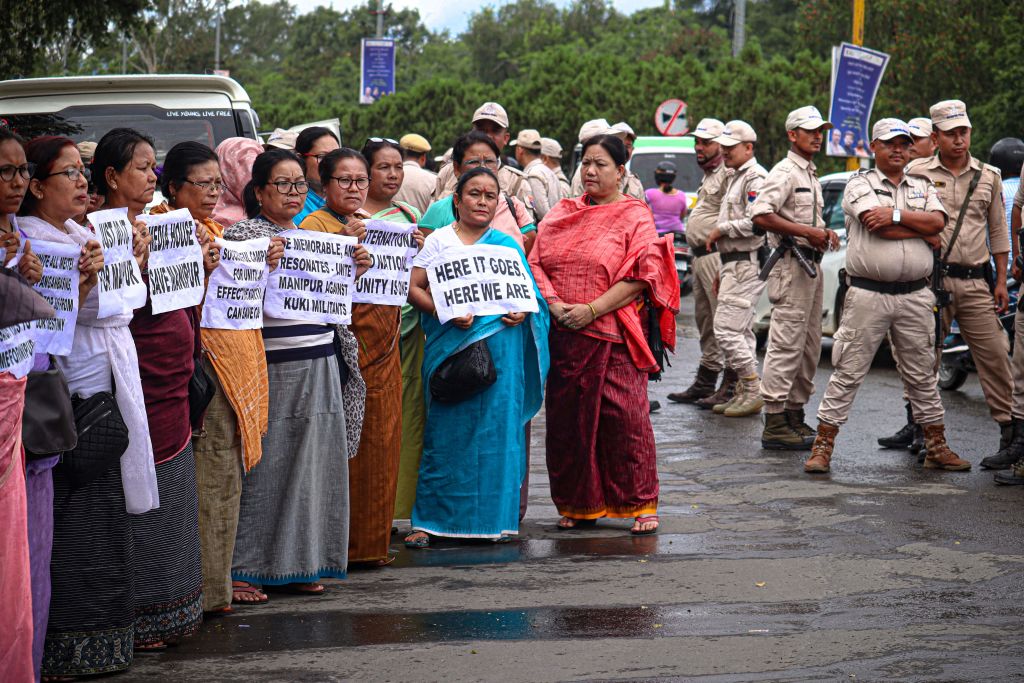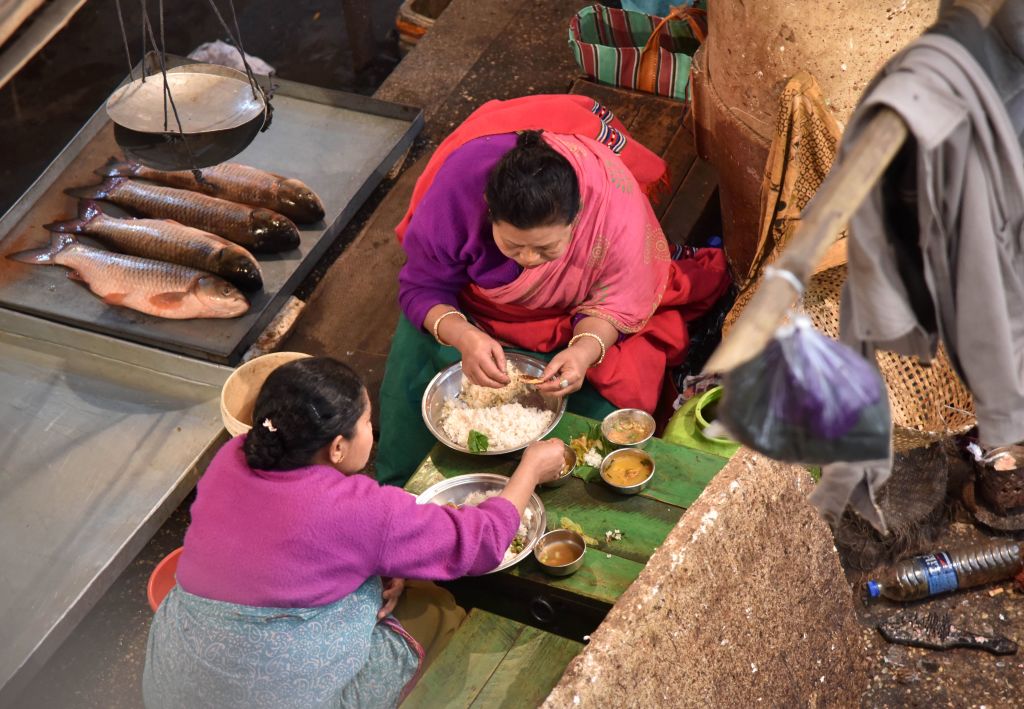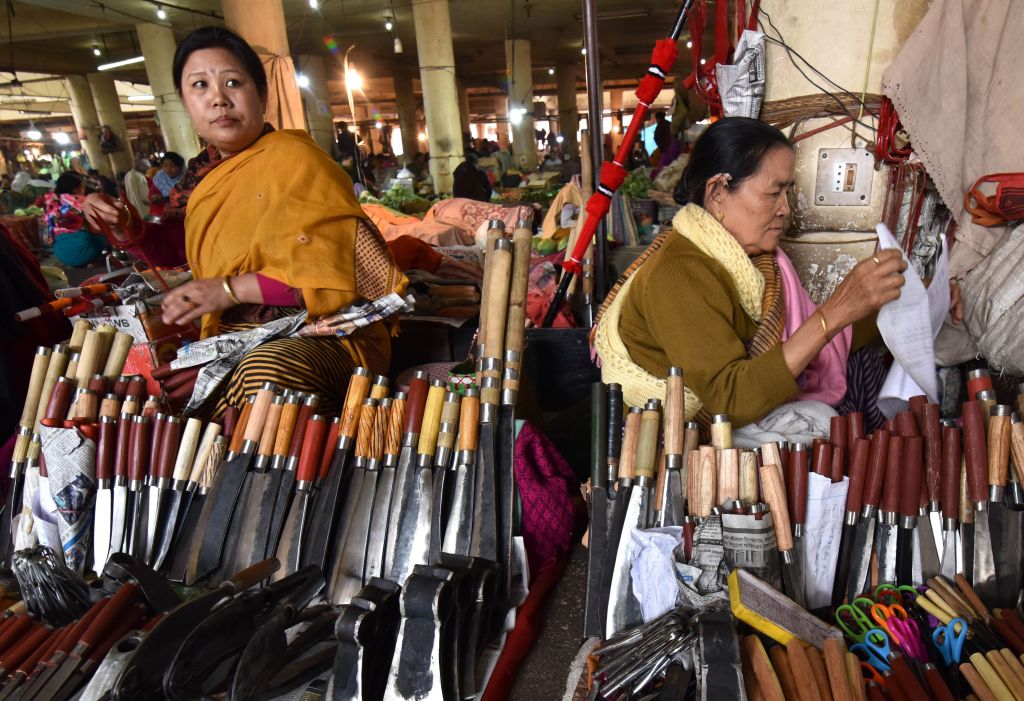- Saturday, July 27, 2024
The nation, the government, everybody forgot Manipur which has seen deaths and displacement of people in the last 11 months over ethnic violence, they said.

By: indiaweekly.biz Staff
REELING from the protracted aftermath of ethnic clashes and civil unrest, traders at Manipur’s iconic ‘Ima Keithel’, a 500-year-old market which is run entirely by women, have shown little enthusiasm for the upcoming national elections.
Alleging that the “nation forgot Manipur”, the traders from various associations in the market are planning to stay away from the electoral exercise beginning April 19. Some are even contemplating voting collectively against the incumbent government in a pursuit for restoring peace in the north-eastern Indian state that has seen deadly ethnic violence breaking out in May last year, resulting in many deaths, injuries and loss of property. Several thousands have also been displaced.
Manipur, which sends two parliamentarians to India’s Lok Sabha (Lower House of the national legislature), and their constituencies are scheduled to go to polls on April 19 and 26, respectively. In 2019, the Bharatiya Janata Party (BJP) of prime minister Narendra Modi won one of the two seats while the other went to the Naga People’s Front, which the former is supporting in this year’s election.
Read: Mass burial unveils tragic toll of violence in India’s Manipur

Nema Devi, a seasoned fish vendor at the 50-year-old market and runs a shop in ‘Ima Keithel’ (mother’s market) for more than a decade, reflects the sentiment shared by many, emphasising the absence of any tangible change despite months of unrest.
“Even 11 months after the violence, there has not been a resolution and no restoration of peace. We continue to live by the rule of taking one day at a time. Living in continuous fear and going ahead with our usual lives,” the 52-year-old told the Press Trust of India.
Expressing little optimism that the upcoming elections will make things better, she added, “What will change with the elections? The nation, the government, everybody forgot Manipur.”
Debjani, a fruits and vegetables vendor, echoed the same, “Elections nai chahiye” (elections not needed).”

Priya Kharaibam, a third-generation pottery trader at the market, asked what is the purpose of elections if the situation doesn’t change.
“If everything has to go on the way it is going on, why do we need elections? What will change?” she asked.
A traders’ group in the market named Manipur Keithel Phambi Apunba Lup has also decided to abstain from election-related activities, accusing the government of showing little concern for the people’s well-being.
Yumnam Ibeyaima, general secretary of the traders’ body, slammed the government saying the decision to hold the elections shows it has little concern for the life and property of the common people. The official added that they have faced huge challenges due to the violence that has continued for nearly a year now.
Asem Nirmala, general secretary of another traders’ body in the market called Lukmaisellup, said there was a lack of government’s responsiveness to the prolonged crisis and emphasised that urgent solutions are more important than elections.
“This is the time for solutions. This is not the time for elections. These polls are being enforced at the very wrong time.
“We are contemplating whether we should either not vote or vote in unison against the government in power and give other parties a chance and see if there is restoration of peace. I am trying to counsel the women in the market but they are not keen on voting,” she told PTI.
Read: Manipur: 13 killed in militants’ gunfight, days after government’s peace pact with insurgents,
The clashes between the Meitei and tribal Kuki communities started over affirmative action and they snowballed, leading to nearly 200 deaths, more than 1,100 injuries and displacement of thousands of people who are living in camps. Instances of crime against women also shocked the nation during this time, forcing even prime minister Narendra Modi, who otherwise was criticised for not visiting the state, to speak out.
Life in Manipur, which has a border with the neighbouring country of Myanmar that often experiences civil unrest, is rife with problems such as armed insurgencies and ethnic tensions and the ongoing violence has pushed the future of its people in deep uncertainty.
The women traders even protested in the national capital New Delhi, located thousands of miles away from Manipur, in June last year. Seventy-five ‘Imas’ or ‘mothers’ (elderly women traders) from the famed market, which was chosen as the theme of the state’s Republic Day tableau in January this year, staged a sit-in protest to demand a solution to the problem in their state and opposing any territorial division there on ethnic lines.
Speaking about the failure of elected representatives to address their grievances effectively, Kunjang Phema, a fabric vendor, told PTI, “Why do we choose a representative? So our voices are heard and acted upon. If that has not happened in such a critical situation when will it happen? Why should we vote? We are still contemplating whether to vote or not but if you ask us if we have faith in elections? No.”
She was in the group that protested in the capital last year.
The mood in Manipur has not changed much despite the Election Commission of India announcing that its displaced population could cast their ballots during the national election from relief camps.
“The government cannot see that Manipur is burning, it feels like it is some state outside India and hence peace here is not on their agenda. Why should we impose our faith in such a system which has abandoned us at this crucial time? Despite the huge deployment of forces, we do not feel safe in our own homeland,” said K Dhaneshori.
(With PTI inputs)